
A couple weeks ago I had a student come to the clinic for pain management. Her story is a common one, and often doesn’t get the attention it deserves.
Tell me if this sounds familiar…
“I don’t remember hurting my back. It just started having more and more pain. I feel like I shouldn’t have this when I’m this young!”
As a physiotherapist, I see many people walking through our clinic doors looking for help with their back pain.
Today I am going to walk you through the 6 things that are contributing to your back pain. But that’s not all.
Then you will learn the 5 changes to your everyday routine that will help your back feel better… and keep it that way!
And don’t worry, whether you are a high school student or work at a desk 40 hours/week, you will also find these tips and tricks helpful.
Where did this back pain come from?
You may have had a specific event that caused back pain (ie. a gymnastics injury, an accident, a bad hit in football, etc), and it never REALLY went away.
This type of back pain is sometimes easier to understand – at least you know what you did to cause the pain in the first place!
You may also have a pre-existing condition like scoliosis, that may (or may NOT) have resulted in back pain when you were younger.
Now that you’re older, your pre-existing condition may complicate your pain.
Or, it may have started a while ago, and you can’t really pinpoint an individual event that started it.
Despite it being gradual, it can disrupt your life.
Unfortunately, some people do not seek out treatment for back pain because “they never injured it”, and they think nothing that can be done to make them feel better.
This couldn’t be further from the truth!
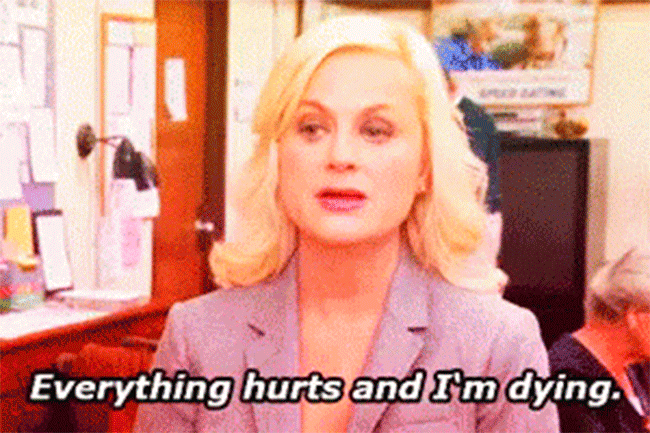
Let’s take a look at “Karen” (my made up sample student for illustrative purposes). Karen is a 20 year old female at a local university.
She is in her 3rd year of her undergrad, which involves 25 hours of lecture time, another 5 hours of lab time, and on average an extra 3 hours of studying a day.
During midterms and exam season, it’s not unusual for her to sit in the library sipping her 3rd coffee of the day for 8 hours straight.
Karen is very active. (Wait. Let me correct that statement). Karen WAS very active in high school, when she played competitive soccer and was on the school track team plus playing hockey in the winter.
Since moving away from home to university, she wanted to focus on her studies so she hasn’t followed up on opportunities to play sports on the varsity or intramural teams.
But don’t worry, Karen is still quite healthy. (Wait. Let me correct that statement). Karen USED to get her 8 hours of sleep, but the university life has caught up with her.
Sometimes she’s lucky if she gets 4-5 hours of sleep. Karen used to eat nutritious meals consistently.
Now she does her best, but sometimes it’s hard to make healthy choices when you’re tired after a day of studying – food preparation takes time after all! (And money…)
Anyways. Karen has midterms coming up and her classes are NOT EASY this semester.
She feels the immense stress, and on top of everything her back is killing her! She doesn’t remember when her back pain started, nor was it ever THAT bad.
Now her pain is out of control, which adds to her stress. She is unable to focus for long before the pain creeps up on her.

It sounds like Karen needs a little bit of help.
Like in Karen’s story, it’s not just one factor that may bring on back pain, it can be many things that contribute to how you feel! Do parts of her story sound familiar to you?
Influences on low back pain when you’re a student:
1. Increased time sitting
Your lecture time and studying time add up! Sometimes students will find themselves in class or studying for more hours than a full time job.
If you’re spending all that time sitting, it means you need to make sure you’re really moving in the time you’re not sitting. Better yet, study in different positions.
Try creating a place in your room to use as a standing desk for when you have been sitting too long, but don’t have time for a break.
If you’re trying to memorize or rehearse a presentation, try walking laps around your house or the library while you do this.
Keep in mind though, sitting itself isn’t a problem… it’s just a position!
It’s HOW MUCH sitting you’re doing in your day, and what you’re doing in the times that you’re NOT sitting, that is important.
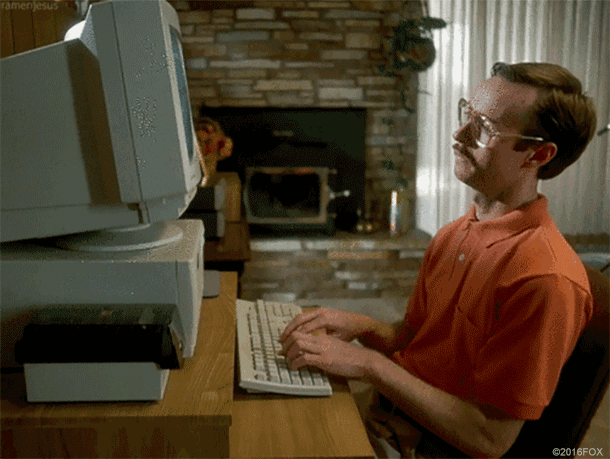
2. Decreased activity level
When doing all that sitting while you are studying and learning all the time, you often want to relax in your free time – not head to the gym.
Not to mention that those sports you may have played in the past don’t seem to fit into your schedule any more.
Try to carve out some time for physical activity.
This can be an hour a few times per week of intramural dodgeball (my personal favourite), or 30 minutes a few times per week at the gym for weightlifting.
Anything to get you moving can be helpful. Take a stroll with some friends! It will get you moving, and reduce your stress levels.
Not to mention that you will be more focused when you do get back to your school work!
3. Increased stress level.
We can separate this category into school stress, family stress, friend stress, financial stress, and even stress from having back pain.
Several students find their body feels the worst during exam time.

4. Poorer lifestyle habits
When starting school, you may find that you are struggling to get your usual amount of sleep.
You may also find getting nutritious meals when you are busy at school is more challenging.
Especially when living away from home and relying on your meal plan. It’s hard for your body to recover in this less-than-ideal environment.
5. Perceived decreased free time
When struggling to manage school, work, friends, and living away from home, it can be hard to manage your time.
When life is getting busy, your workouts or sports can be the first thing to skip if you’re struggling to keep up.
Unfortunately, if this becomes a habit, you become more sedentary. Your body will not be appreciative of this.
6. Mental health
Anxiety and depression can have a negative influence on back pain as well. If this is something you may be struggling with, reach out to on-campus resources for help.
Here are some questions that Karen might ask me as a physiotherapist.
What do I use to make by back feel better? Ice, heat, my mom’s random cream that’s in the medicine cupboard that she swears by?
Heating the area of you back in pain is best.
This will bring blood flow to the area, help the muscles feel more flexible, help you move better, and reduce pain.
Use a heating pad/heat pack/microwave bean bag/hot water bottle for 15 minutes in the area that you have pain 1-5 times per day.
As for over the counter creams/rubs, if you’re in a pinch and find these pain relieving creams helpful, feel free to use them!
It is important to know that these creams are not addressing the core issue of your back pain, and are just helping the pain intensity to be less.
Which, if you’re heading into your 3 hour midterm, may be what you need to get through in the meantime.
What can I change about my everyday habits to make my back pain feel better?
- First, take a break from studying/sitting every 20 minutes. Even if it’s a 1 minute break, a lap around the library/coffee shop you’re in can help move your body in a different way to help make you feel better.
- Move your body in lots of different ways, every day. Bend over and touch your toes, and reach up high towards the ceiling to stretch everything out!
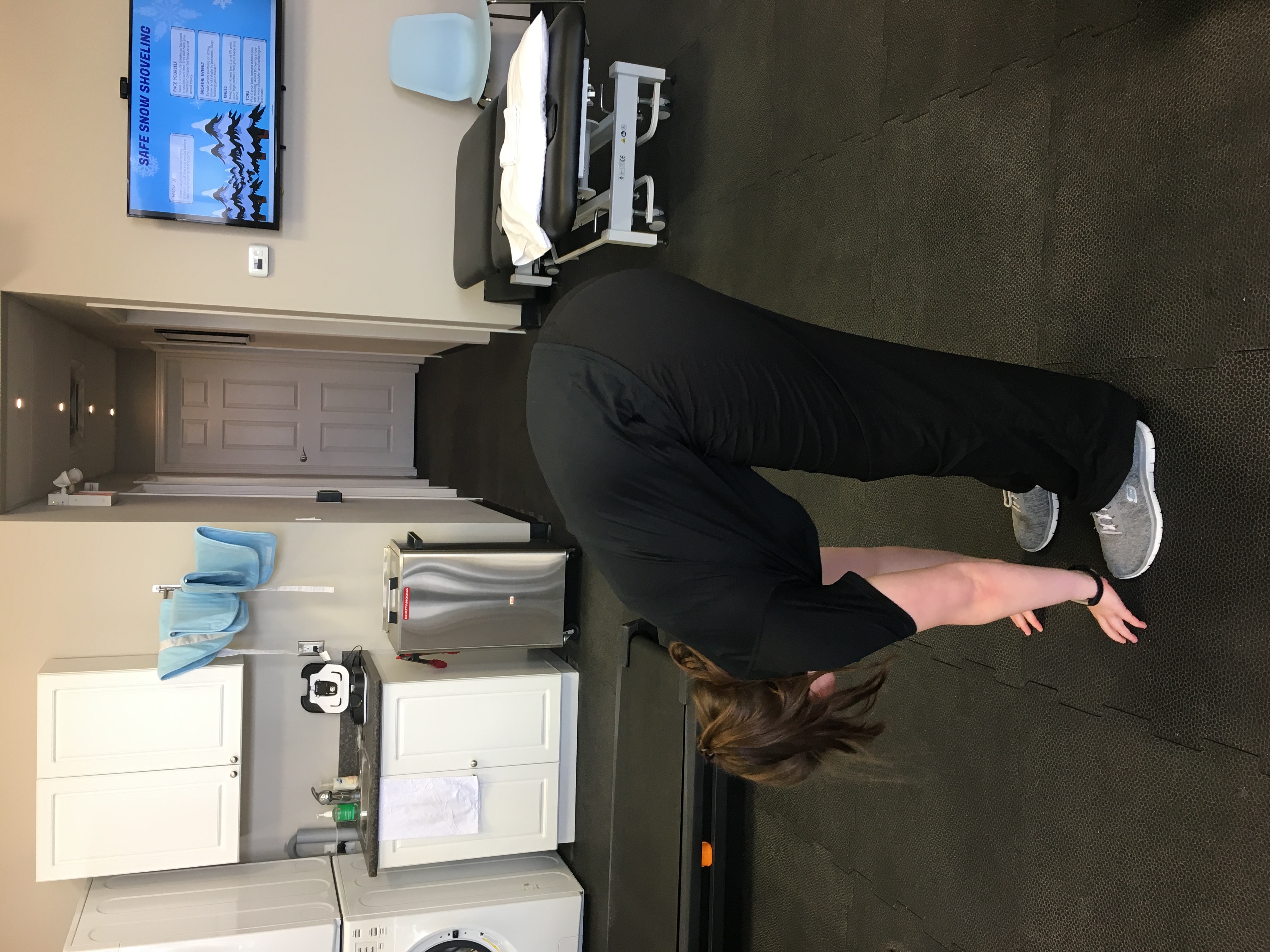
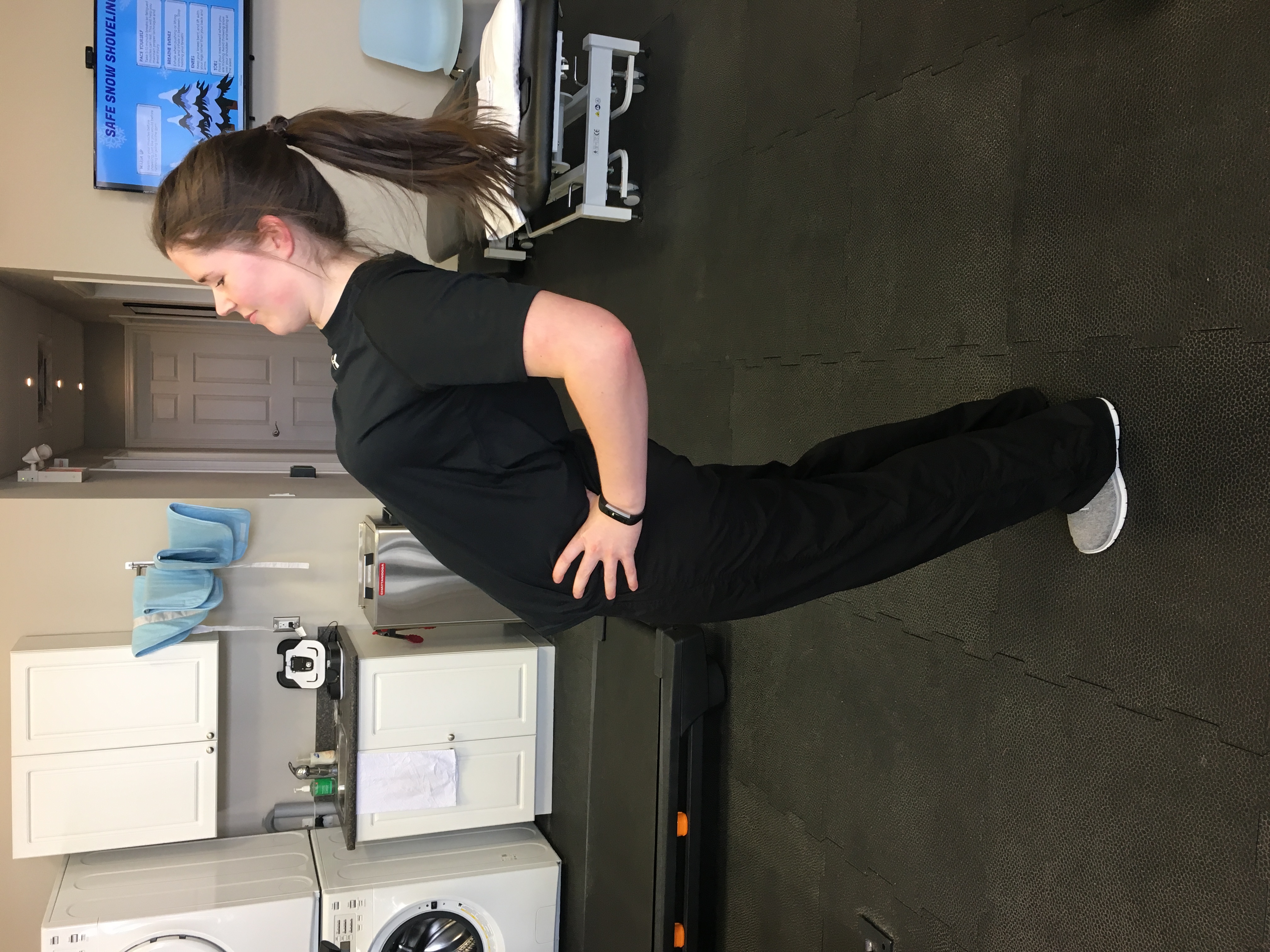
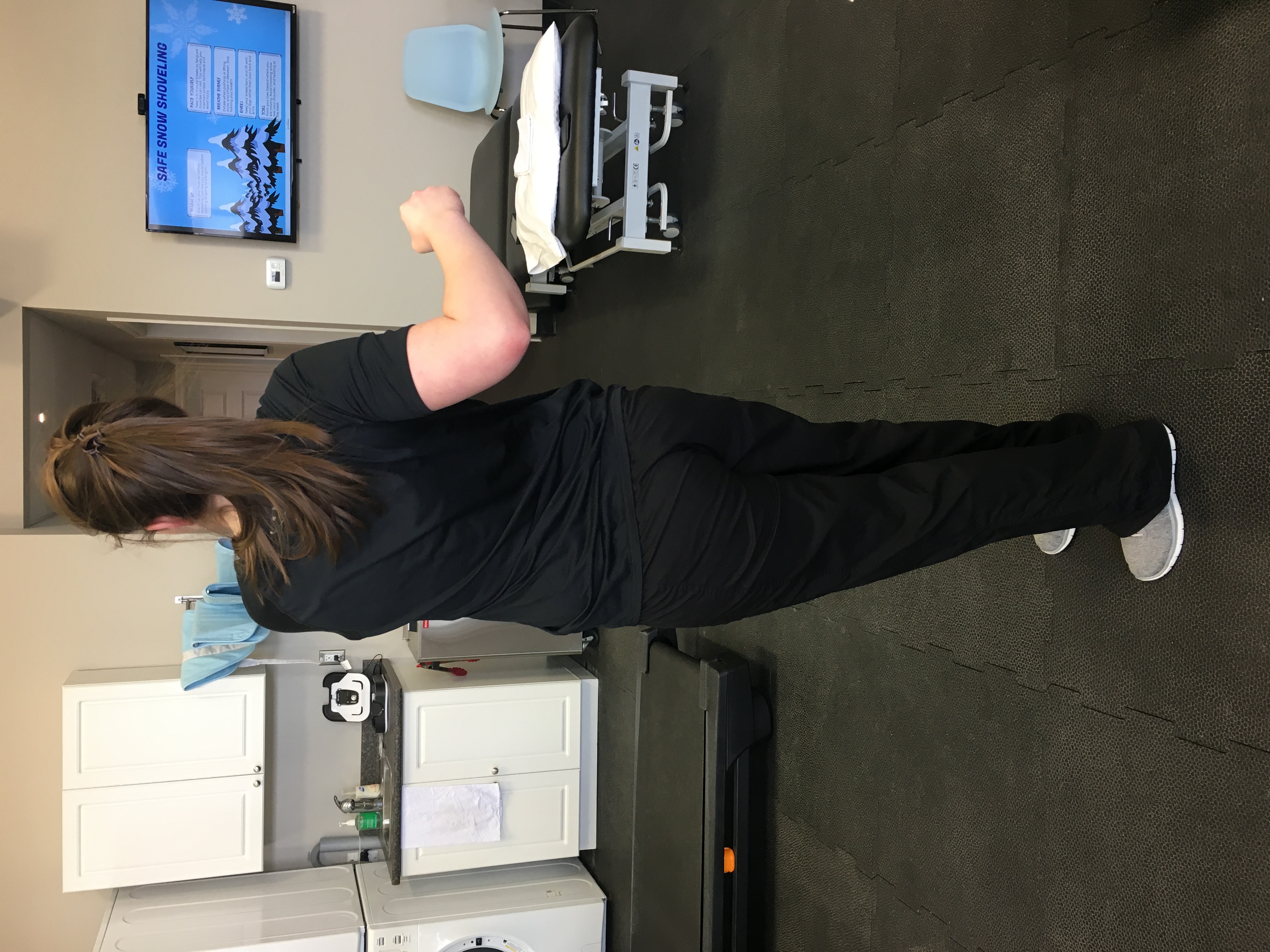
- Join an exercise class! If you like having someone tell you exactly what to do, pick a class that interests you. Grab a friend or two and try a Zumba class, or a yoga class, or a cardio kickboxing class.
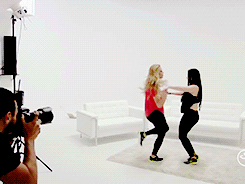
- Join an intramural team – whether it’s dodgeball or soccer, having a structured game to play can help to get your whole body moving!
- In your lectures, if you have a break, walk around! If you’re feeling tired or sluggish, it will help wake you up so you are more ready to pay attention after your break too.
My posture is terrible and everyone always says if I sat up straight then I would feel better. News flash! I can only sit like that for a short while before I start feeling uncomfortable! What gives?
If your most comfortable position is slumping over, resting your arms on your desk in front of you as you struggle to retain knowledge in your lectures… that’s okay!
Some people find that over time when you try to move out of this position, that you have a feeling of fatigue or achiness in your back if you try to sit up straight without moving.
This is a sign that your muscles aren’t used to staying in that posture, which is okay!
You have back extensor muscles (a lot of them) that contract when you are sitting up tall, and stretch out and relax when your back is hunched.
When your muscles contract and relax, they receive more blood flow into the muscle which can help decrease that feeling of tension.
Moving these muscles will also send information about the position of your back up to your brain.
Since your body and brain enjoy moving, your brain will tell you when you’ve been sitting too long.
Instead of trying to hold your back up and stay in a “perfect” posture, do repetitions of moving into a tall posture, and then relaxing down to your most comfortable posture several times throughout your lecture.
That way you are allowing your back muscles and joints to move and get blood flow to help decrease the tension.
Your “perfect posture” is actually your NEXT posture/position!
To increase your tolerance for sitting in a tall upright position, you can also do exercises that challenge your back extensors.
These can include a variety of upper body dumbbell exercises in a standing position, or some deadlifts and squats.
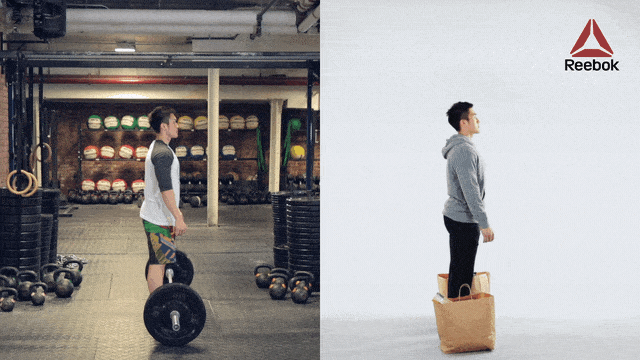
By building up the strength in your back extensor muscles, you will find that your tolerance for sitting up tall will increase.
Which means you pain will decrease!
About that “perfect posture”… people with perfect posture can have pain too!
Especially if they are in their “perfect posture” all day long and never moving.
Regardless of how you want to sit, if you are feeling uncomfortable, change positions. You will feel better!

I heard exercise was good for back pain. But after the gym my pain was worse than before. Help!
It can be frustrating when you get motivated to head to the gym, then go home feeling worse off than you were before.
The lesson that you should learn here is NOT “Exercise is bad for me”. It’s also not “I’m too weak to exercise anymore”.
It’s also not “My body is broken and all hope is lost”.
The lesson that you should learn from this situation is simple: “This is my first workout in quite a while. I should start out slow, and let my body adapt to the new exercise.”
Consider this.
People occasionally wake up and suddenly decide to run a marathon (not my cup of tea, but it happens!).
They find their desired marathon, and then spend several MONTHS training.
This is because your body is usually not used to running for hours at a time.
Your body needs you to work gradually, and over time.
Regardless of the activity, suddenly increasing the levels or intensity creates stress on your body.
Instead, slowly increase your activity level over time.
Your muscles, joints, and brain will build their tolerance to that activity and not freak out when you do it.
Here’s what to do the next time you head into the gym:
- Start off with a ~30 minute workout. Keep it on the shorter side with a 5 minute warm up, and 5 minute cool down to ease yourself into and out of the workout
- If an exercise that you’re doing doesn’t feel good, modify it to an easier version
Keep in mind that you may feel sore for a fews days after you exercise.
This should be a good “oh I worked hard at the gym” kind of soreness.
Not an “Everything is terrible and I can’t move for three days” kind of soreness.
When to take time out of your schedule to get help:
Managing a little bit of back stiffness or pain can be pretty straightforward if you start following some of the tips and tricks I’ve mentioned here.
However, if your pain has been building over a long period of time or is very intense and has prompted you to seek out this blog, you may find that you need a little bit of one-on-one help.
A physiotherapist can assess your movement and ensure that you’re starting off with the most effective exercises to your individual situation.
Your past injuries, medical history, and particular nature of your back pain will play a role into the best treatment for you.
A physiotherapist may also have suggestions about your daily habits or activities to better manage your pain.
You may also receive passive treatments like cupping, soft tissue mobilization, heat, acupuncture, or TENS early on in your treatment to help settle down your symptoms. The most important aspect of your treatment is strengthening your body. This will make it more tolerant to sitting for longer periods, plus getting back to doing what you love.
Also consider a massage therapy appointment. Decreased pain, increased movement, relaxation… zzz…
TLDR
1. Change positions when you’re in lecture or studying frequently
2. Take breaks from sitting every 30 minutes
3. Use heat on your back for pain relief
4. Start doing more movement (gym, sports, home exercises, etc)
Do you think you need some help getting your back feeling better? Call us at 519-895-2020, or use our online booking tool on www.strivept.ca to book an appointment with one of our knowledgeable physiotherapists, and they will help you understand your injury.
Cheers,
Physiotherapist at Strive Physiotherapy and Performance (and former university student who spent a lot of time hunched over books)